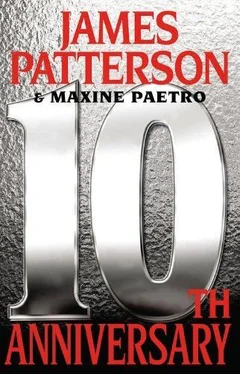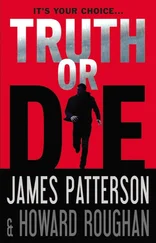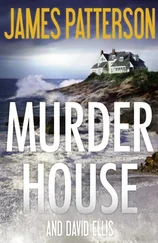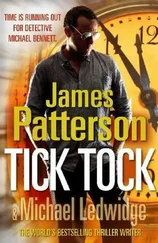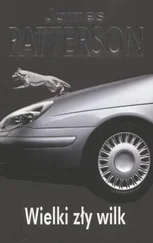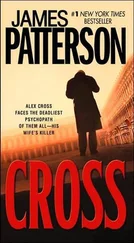“Steady, Blondie,” Joe said. “It only gets better from here.”
I laughed, and when we resumed our positions, I got that gold band onto Joe’s finger. The Reverend Boyer told Joe he could kiss the bride, and my husband held my face between his hands.
We kissed, and then again. And again. And again.
There was wild applause and a surge of music.
This was real. I was Mrs. Joseph Molinari. Joe took my hand and, grinning like little kids, we walked back up the aisle through a shower of rose petals.
Book One. LITTLE BOY LOST
A TEENAGE GIRL wearing a neon green plastic poncho, naked underneath, stumbled along a dark road. She was scared out of her mind and in pain, the cramps coming like repeated blows to her gut and getting worse. Blood had started coming out of her a while ago, and now it was running fast and hot down her legs.
What had she done?
People always told her she was a smart kid, but — and this was a fact — she’d made a horrible mistake, and if she didn’t get help soon, she was going to die.
But where was she?
She had the sense that she was walking in circles but getting nowhere. During the day, the area around Lake Merced was full of traffic — joggers, cyclists, a steady stream of cars on the road around the lake. But at night it was completely deserted. The darkness was bad enough, but now fog filled the basin. She couldn’t see farther than a few yards in front of her.
And she was really scared.
People had gone missing around here. There had been murders . Plenty of them.
Her feet dragged. She really couldn’t lift them, and then she felt herself fading out, just leaving her body. She reached out to brace her fall, and her hand found the trunk of a tree. She gripped it with both hands and held on hard to the rough bark until she felt rooted in the black, moonless night.
Oh my God. Where am I now?
Two cars had already passed her without stopping, and now she thought of abandoning her plan to flag down a car and return to the house. They were gone. She could sleep. Maybe the blood would stop flowing if she could lie down — but she was so lost. She didn’t know which way to turn.
The girl stumbled forward, looking for light, any light.
Blood was running faster out of her body, dripping down her legs, and she felt so faint that her legs hardly held her up.
As she pushed herself forward, she stubbed her toe on something hard and unforgiving, a root or a stone, and she pitched forward. She put out her hands, bracing for the fall.
Her chin and knees and palms took the brunt of it, but she was all right. Panting from the pain, the girl got to her feet.
She could make out the trees along the roadside, the eucalyptus and the pines looming overhead. Grasses scratched at her arms and legs as she staggered through them.
She imagined a car stopping, or a house coming into view. She imagined how she would tell the story. Would she have a chance to do that? Please. She couldn’t die now. She was only fifteen years old.
A dog barked in the distance and the girl changed course and headed toward that sound. A dog meant a house, a phone, a car, a hospital.
She was thinking of her room, of being safe there. She saw her bed and her desk and the pictures on the wall and her phone — oh, man, if only she still had her phone — and that’s when her foot turned over, her ankle twisting, and she went down again, falling really hard, skinning half of her body.
This was too much. Too much.
She stayed down this time. Everything hurt so much. She made a pillow of her arms and just rested her head. Maybe if she took a little nap. Yeah, maybe some sleep was what she needed and then, in the morning … when the sun came up …
It took a long moment to understand that the dull light growing brighter in the fog was a pair of headlights coming toward her.
She put up her hand and there was a squeal of brakes.
A woman’s voice said, “Oh my God. Are you hurt?”
“Help me,” she said. “I need help.”
“Stay with me,” said the woman’s voice. “Don’t go to sleep, young lady. I’m calling nine one one. Look at me. Keep your eyes open.”
“I’ve lost my baby,” the girl said.
And then she didn’t feel any more pain.
RAIN WAS BATTERING the hood and sheeting down the windshield as I pulled my ancient Explorer into the lot next to the Medical Examiner’s Office on Harriet Street, right behind the Hall of Justice. I had some anxiety about returning to work after taking time off to get married.
In a few minutes, I was going to have some catching up to do, and then there was a new fact I would have to deal with.
I would be reporting to a new lieutenant.
I was prepared for that — as much as I could be.
I pulled up the collar of my well-used blue blazer and made a wild, wet dash for the back entrance of the Hall, the gray granite building that housed the Justice Department, criminal court, two jails, and the Southern Station of the SFPD.
I badged Kevin at the back door, then took the stairs at a jog. When I got to the third floor, I opened the stairwell door to the Homicide Division and pushed through the double-hinged gate to the squad room.
It was a zoo.
I said, “Hey, there,” to Brenda, who stood up and gave me a hug and a paper towel.
“I wish you so much happiness,” she said.
I thanked Brenda, promised wedding pictures, and then mopped my face and hair. I took a visual inventory of who was on the job at 7:45 a.m.
The bullpen was packed.
The night shift was straightening up, sinking refuse into trash baskets, and a half-dozen day-shift cops were waiting for their desks. Last time I was here, Jacobi still occupied what we laughingly call the corner office: a ten-foot-square glass cubicle overlooking the James Lick Freeway.
Since then, Jacobi had been bumped upstairs to chief of police, and the new guy, Jackson Brady, had scored the lieutenant’s job.
I had a little history with Brady. He had transferred to San Francisco from Miami PD only a month before, and in his first weeks as a floater, he had shown heroism in the field. I worked with him on the explosive multiple homicide case that put him on the short list for Jacobi’s old job.
I’d been offered the job, too, thanks very much, but I’d turned it down. I’d already held down the corner office for a few years, until I got sick of the administrative overload: the budgets, payrolls, meetings with everyone, and layers of bureaucratic bull.
Brady could have the job with my blessing.
I just hoped he’d let me do mine.
I saw Brady through the walls of his cube. His white-blond hair was pulled back in a ponytail, and he wore a shoulder holster over a starched blue cotton shirt that stretched across his massive chest.
He looked up and signaled for me to come to his office. When I got there, he hung up the phone. Reaching across the desk that was once mine, he shook my hand and congratulated me.
“Are you using Boxer or Molinari?” he asked me.
“Boxer.”
“Well, have a seat, Sergeant Boxer,” he said, waving me toward the chair across from his desk. “I got a call from Major Case Division about ten minutes ago. They’re short on manpower and asked for help. I want you and Conklin to check it out.”
“The case is a homicide?” I asked.
“Could be. Or maybe not. Right now it’s an open case. Your open case.”
What kind of bull was this?
Step out of line for a couple of weeks, and the only open case was a spillover from another unit? Or was Brady testing me — alpha-dog management style?
“Conklin has the case file,” Brady said. “Keep me in the loop. And welcome back, Boxer.”
Читать дальше
